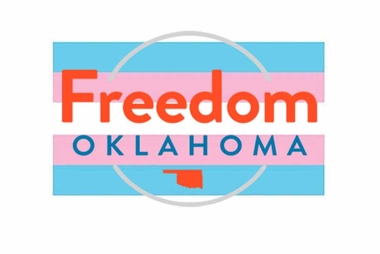Transgender bill could cost Oklahoma $2 billion

Today, the American Civil Liberties Union (ACLU) and Freedom Oklahoma wrote a memo addressed to the Oklahoma State Legislature and Gov. Mary Fallin. It reads as follows:
"[Organizations] strongly oppose Senate Bill 1619. This bill does not address an existing problem and could expose Oklahoma’s schools to costly administrative complaints and litigation, resulting in legal fees, lost time, and the loss of federal funding for education. In addition to the clear financial risks posed to our already under funded education system, SB 1619 would also cost taxpayers in lost revenue[1] and added expenses for additional restrooms and locker rooms that are mandated under the terms of the bill.
"SB 1619 puts Oklahoma schools at odds with federal law, risking the state the loss of the nearly two billion dollars that Oklahoma schools receive in federal funding from the U.S. Department of Education
"The U.S. Department of Education’s Office of Civil Rights has determined that a school or school district violates Title IX when it fails to provide access to restrooms and locker rooms consistent with a transgender student’s gender identity.[2]
"If SB 1619 were to become law, any school district that followed this state law and the state itself could be investigated and sued for violations of Title IX. The State of Oklahoma and its school districts would then face a loss of all their federal funding due to these Title IX violations.[3] In 2016, for example, that would amount to $1,843,720,846.[4]
"Oklahoma lawmakers would either have to raise revenue—likely through taxes—to cover this enormous loss, or our schools would be forced to cut funding to critical programs funded by federal dollars, like special education, math and science partnerships, rural schools, and food assistance for impoverished students."
However, according to David Blatt at the Oklahoma Policy Institute, the conservative estimate is around $700 million.
[1] As a point of comparison, this report outlines the extensive revenue and other costs to the state of North Carolina as a result of the passage of H.B. 2. Christy Mallory & Brad Sears, Discrimination, Diversity, and Development: The Legal and Economic Implications of North Carolina’s HB2 (May 2016),
http://williamsinstitute.law.ucla.edu/wp-content/uploads/Discrimination-....
[2] See G.G. v. Gloucester County Sch. Bd., No. 15-2056, Br. of United States as Amicus Curiae (4th Cir.), www.aclu.org/sites/default/files/
field_document/dojamicusbrief.pdf; OCR Case No. 05-14-1055, Letter from Adele Rapport, Reg’l Dir., Office for Civil Rights, U.S. Dep’t of Educ., to Dr. Daniel E. Cates, Superintendent, Twp. High Sch. Dist. 211 (Nov. 2, 2015), www2.ed.gov/documents/press-releases/township-high-211-letter.pdf; see generally U.S. Dep’t of Education and U.S. Dep’t of Justice, Dear Colleague Letters on Transgender Students (May 13, 2016), http://www2.ed.gov/about/offices/list/ocr/letters/colleague-201605-title....
[3] Cf. Int'l Union, United Auto., Aerospace & Agr. Implement Workers of Am., UAW v. Johnson Controls, Inc., 499 U.S. 187, 209 (1991) (“When it is impossible for [a school board] to comply with both state and federal requirements,” the Supreme Court “has ruled that federal law pre-empts that of the States.”)
[4] United States Department of Education, Funds for State Formula-Allocated and Selected Student Aid Programs, http://www2.ed.gov/about/overview/budget/statetables/16stbystate.pdf.
The Gayly - 5/24/2016 @ 12:12 p.m. CDT





